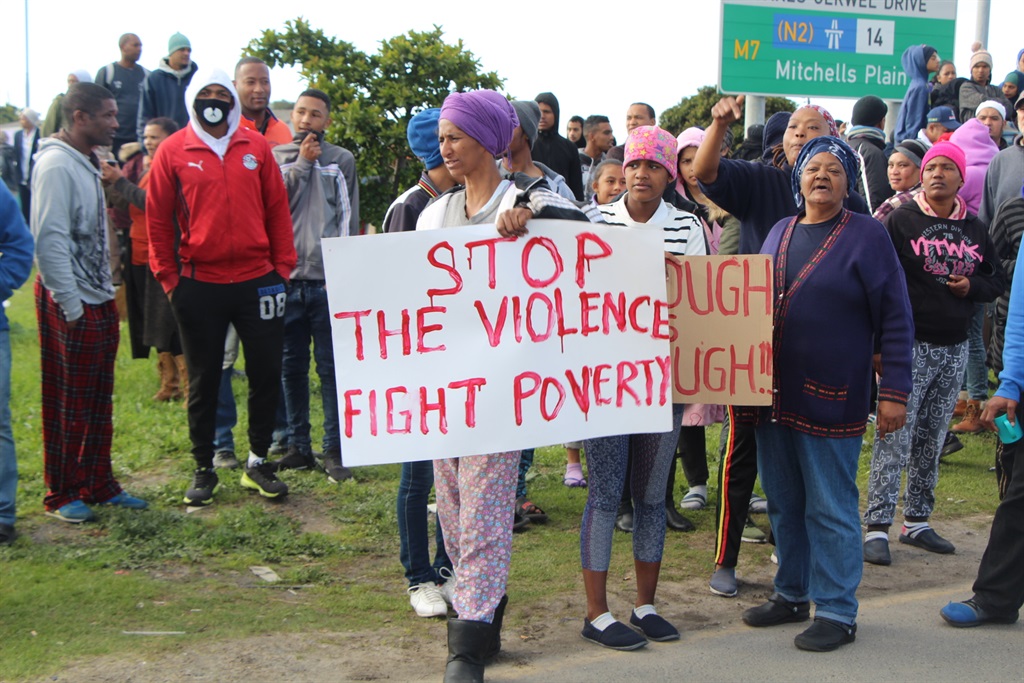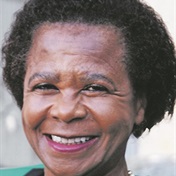
We need to stop the criminal wastage of the talent residing in our youthful population by taking steps to transform the socio-economic structures of our society that perpetuate the wounds of divisions, writes Mamphela Ramphele.
Gangsterism in our schools challenges us to return to the purpose of education – to prepare young people for life as responsible, critical-thinking confident citizens.
The purpose of education goes far beyond the matric certificate to the heart of the noble task of enabling every child to develop her full potential. Societies that fail in this noble task reap the whirlwind we are reaping right now.
Gangsterism is a global phenomenon. Research indicates that the root cause of gangs is often widespread corruption and a sense of unfairness and powerlessness. If the police do not protect the people, the courts do not punish wrongdoers, and people feel unsafe, cheated, and hopeless, they may band together and use violence to attain protection, security, and respect. The epidemic of violence across our country, including our schools, reflects the sense of unfairness and powerlessness of many in our society.
The sad commentary by education MEC Panyaza Lesufi in response to the latest crisis of gangsterism and violence in our schools, "We would like to issue Matric certificates, not death certificates", should make us pause as a nation. Is it possible or desirable for us to graduate young people from our school system without paying attention to their development into responsible self-confident citizens?
Violence has become a way of life across our country, from Manenberg in Cape Town to townships and villages of Limpopo because we have not invested enough time and energy in creating liveable dignified human settlements for the majority of citizens.
A culture of impunity in abuse of power, state resources, corruption and lack of accountability in our public and private sectors has become the norm in our society. In addition, grinding poverty, unemployment and the humiliation of inequalities experienced by the majority of our fellow citizens, lie at the heart of the horrific violence in our homes, schools, workplaces and communities.
The loss of our moral and ethical centre over the decades, pre- and post-apartheid, is robbing children of the love and support they need to develop their self-worth, self-confidence and identity. In addition, 65% of children in our society grow up without a biological father, either because he is unknown or is physically and emotionally absent. How do we expect young men to develop a healthy sense of what it means to be a man without emotional ties to a positive role model who loves them and who they can trust?
We have to acknowledge that we have neglected the impact of our legacy of inequities on our children, including the systematic destruction of African family life through the migrant labour system. We also have to acknowledge that our failure to heal the wounds of that legacy as enjoined by the preamble of our Constitution has left the poorest families to fend for themselves without the psycho-social support they need, to reclaim and affirm their human dignity and develop into self-confident citizens.
Violence a wake-up call to address root causes
The crisis of violence and crisis is a wake-up call for us to address their root causes. Those implicated in the widespread corruption and state capture, both private and public, need to be seen as being held to account. Such decisive action would help to re-establish the legitimacy of our law enforcement and judiciary system in the eyes of ordinary people. Fairness and equality of all in front of the law needs to be seen to be the reality at all levels of society.
Vulnerable communities also need to be supported by systematic investments in the physical and social infrastructure to create more dignified human settlements. Broken windows and neglected streets contribute to a sense of being unworthy and promote lawlessness. Why not round up unemployed young people in such communities, train them with the help of SANDF to become self-respecting, disciplined and skilled artisans to become the backbone of maintenance of common public goods? Sustainable employment would restore their self-confidence and give meaning to their lives away from crime and violence.
More visible policing and zero tolerance of abuse of power and negligence by the police are critical to rebuilding the damaged image of the police as trustworthy public servants. There are too many cases of abuse of power and disrespect of citizens within our police service. Many in the police service need to be retrained to understand the tenets of human rights policing. This would restore public trust in our institutions and higher expectation that fairness is a value in our society.
We also need to start now to utilise the Life Orientation (LO) space in our school curriculum to open conversations about troubling problems children have to deal with without adult help. The Leap School system uses LO successfully to help children coming from broken homes and broken communities to transcend the limitations of their home circumstances. Questions such as who am I should not be left hanging in the minds of many of our children. Identity issues are at the core of what makes for success or failure of each of us. Children need help to explore what it means to be a man or a woman? How to always respect others simply because they are human?
We need to revamp the teaching of African history so our children can learn about their ancestors' contributions to world civilisation and become proud citizens of this ancient continent. This would help children answer the tough questions they dare not even raise: What is the place of my culture in a world dominated by material possessions to determine the importance of individuals in a highly unequal society?
Big brother, big sister teams
Why don't we identify and train unemployed graduates to become "big brother, big sister" teams that can be deployed in the most vulnerable schools and communities for two years at a time for each cohort? This would serve several purposes. First, such team members would support over-stretched teachers to conduct LO classes and provide someone in the classroom for the teacher to talk to. LO in our curriculum is an underutilised asset that should be harnessed.
Second, these team members would gain insights from the training programs and the practical engagements with school pupils that would help them reflect on their own personal development journeys. This would help them to be more prepared for the world of work. Finally, the team members would earn some income and might help them clarify their own career goals, including the possibility of teaching as a profession.
We need to stop the criminal wastage of the talent residing in our youthful population by taking steps to transform the socio-economic structures of our society that perpetuate the wounds of divisions. Children who are loved, affirmed and supported to develop their talents, are unlikely to be involved in violent criminal behaviour. It is up to us as a society to turn this situation around.
- Mamphela Ramphele is co-founder of ReimagineSA.
Disclaimer: News24 encourages freedom of speech and the expression of diverse views. The views of columnists published on News24 are therefore their own and do not necessarily represent the views of News24.




 Publications
Publications
 Partners
Partners






















